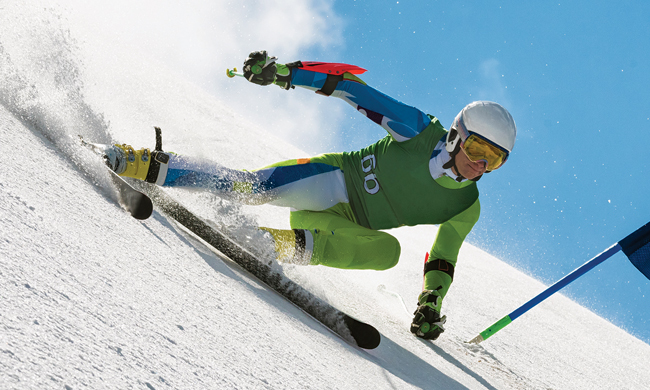3 Keys to Becoming an Elite Athlete
Feb 12, 2018 03:32AM ● By Family Features

When it comes to becoming an elite athlete, there are differing opinions on what it takes to win gold.
Sports analysts and commentators often reference sprint times, body weight, height or age as differentiating factors, but Dr. Steven Stein, CEO of Multi-Health Systems and emotional intelligence expert, has a different idea.
Emotional intelligence is a set of emotional and social skills that influence the way people perceive and express themselves, develop and maintain social relationships, cope with challenges and use emotional information in an effective and meaningful way.
Using The Emotional Quotient Inventory 2.0 model to test emotional intelligence, Multi-Health Systems found athletes around the world often score high in self-regard: the ability to know their strengths and weaknesses; self-actualization: doing what they love and continually trying to improve; and flexibility: their ability to learn, change and take direction.
Self-Regard
Self-regard is the ability of an athlete to know his or her strengths and weaknesses. For elite athletes, it can also translate into confidence.
“Confidence, as part of self-regard, can be a key differentiator among medal winners,” Stein said. “At the highest level of many sports you have a number of athletes with near-equal skills and talent. Often, having the right mental toughness can make that millisecond or single point difference among judges.”
Self-Actualization
Self-actualization reflects comfort with who you are and what you are doing. For example, competition at the international level takes years of preparation and practice, and may require personal, social and familial sacrifices.
“Self-actualization allows an athlete to continue to learn and improve, as many athletes start out with a vision that helps define their passion,” Stein said. “For example, you frequently hear stories of athletes who come from challenging childhoods – deaths of parents, early injuries or difficulties with school – who commit fully to their sports, find success and go on to become role models for others in both athletics and overcoming adversity.”
Flexibility
Flexibility is a person’s ability to change and take direction, and for an elite athlete, it means learning from a bad performance instead of getting frustrated. It is one of the better predictors of the ability to be coached and succeed, and Multi-Health Systems found that it is especially important in both professional and amateur athletes.
“Sometimes, high-level draft picks in various sports who have difficulty taking instruction don’t make it as professional players,” Stein said. “Great athletes are often great learners, and when athletes think they already know what’s best or don’t listen to coaching, it can derail their performance.”
Learn more about emotional intelligence and the role the mental side plays in becoming an elite athlete at mhs.com .
Photo courtesy of Getty Images




